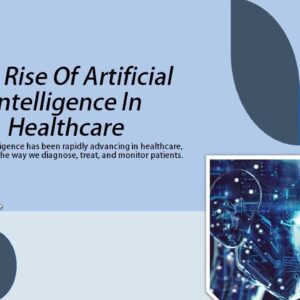In recent years, artificial intelligence (AI) has been making waves in the healthcare industry. From improving patient outcomes to reducing costs, AI is transforming the way healthcare professionals diagnose, treat, and manage illnesses. As we continue to explore the vast potential of AI in healthcare, it is becoming increasingly clear that this technology will play a vital role in shaping the future of medicine. In this comprehensive overview, we take a deep dive into the various applications of AI in healthcare and explore the ways in which it is revolutionizing the industry. Join us on this journey to discover how AI is transforming healthcare as we know it. #AIinHealthcare #ArtificialIntelligence.
Introduction
Artificial Intelligence (AI) is transforming the world that we live in, and the healthcare industry is no exception. The benefits of AI in healthcare are undeniable and are rapidly changing the way doctors and healthcare providers address patient needs. From diagnosis to treatment and beyond, AI is playing an ever-increasing role in the healthcare industry. In this comprehensive overview, we will delve into the ways in which AI is changing healthcare, and explore the many benefits and challenges that come with this transformative technology.
The Benefits of AI in Healthcare
Healthcare providers who utilize AI can experience a wide range of benefits, including:
More Accurate Diagnoses and Predictive Capabilities
One of the most significant benefits of AI in healthcare is its ability to more accurately diagnose diseases and predict health outcomes. Machine learning algorithms can analyze large amounts of data to identify patterns and make predictions, which can lead to faster and more accurate diagnoses.
Enhanced Patient Care
AI can also help healthcare providers deliver better patient care by automating routine tasks and freeing up more time to focus on individual patient needs.
Improved Cost Efficiency
AI can help healthcare providers find ways to reduce costs by automating repetitive tasks, reducing errors, and streamlining administrative tasks.
Increased Research Capabilities
AI can also help researchers analyze large amounts of data more quickly and efficiently, allowing them to make significant breakthroughs in medical research.
Challenges of AI in Healthcare
While there are many benefits to using AI in healthcare, there are also some challenges that come with this transformative technology. Some of the most significant challenges include:
Ensuring Data Privacy and Security
One of the primary concerns with AI in healthcare is ensuring that patient data is kept secure and private. The use of AI can create potential vulnerabilities that hackers could exploit.
Integration with Legacy Systems
Many healthcare providers use legacy systems that can be difficult to integrate with newer AI-powered technologies. This can create challenges in implementing new technologies.
Ethical Considerations
There are ethical considerations that must be taken into account when using AI in healthcare. One concern is the potential for AI to automate certain healthcare tasks, potentially leading to job loss for healthcare workers.
The Future of AI in Healthcare
The future of AI in healthcare is bright, with tremendous potential for making significant breakthroughs in medical research and improving patient outcomes. With the continued advancement of AI and machine learning technologies, we can expect to see more personalized and effective healthcare in the years to come.
Conclusion
AI is revolutionizing the healthcare industry, enabling doctors and healthcare providers to deliver more accurate diagnoses, better patient care, and enhanced research capabilities. While there are some challenges and ethical considerations to be taken into account, the continued development of AI in healthcare is essential to the advancement of medical research and the improvement of patient outcomes.
FAQs
- What are the benefits of using AI in healthcare?
- AI can lead to more accurate diagnoses, enhanced patient care, improved cost efficiency, and increased research capabilities.
- What challenges come with implementing AI in healthcare?
- Challenges include ensuring data privacy and security, integrating with legacy systems, and ethical considerations.
- Can AI lead to job loss in the healthcare industry?
- There is a potential for AI to automate certain healthcare tasks, which could lead to job loss for healthcare workers.
- What is the future of AI in healthcare?
- With the continued advancement of AI and machine learning technologies, we can expect to see more personalized and effective healthcare in the years to come.
- What is the most significant benefit of using AI in healthcare?
- The most significant benefit is AI’s ability to more accurately diagnose diseases and predict health outcomes.
